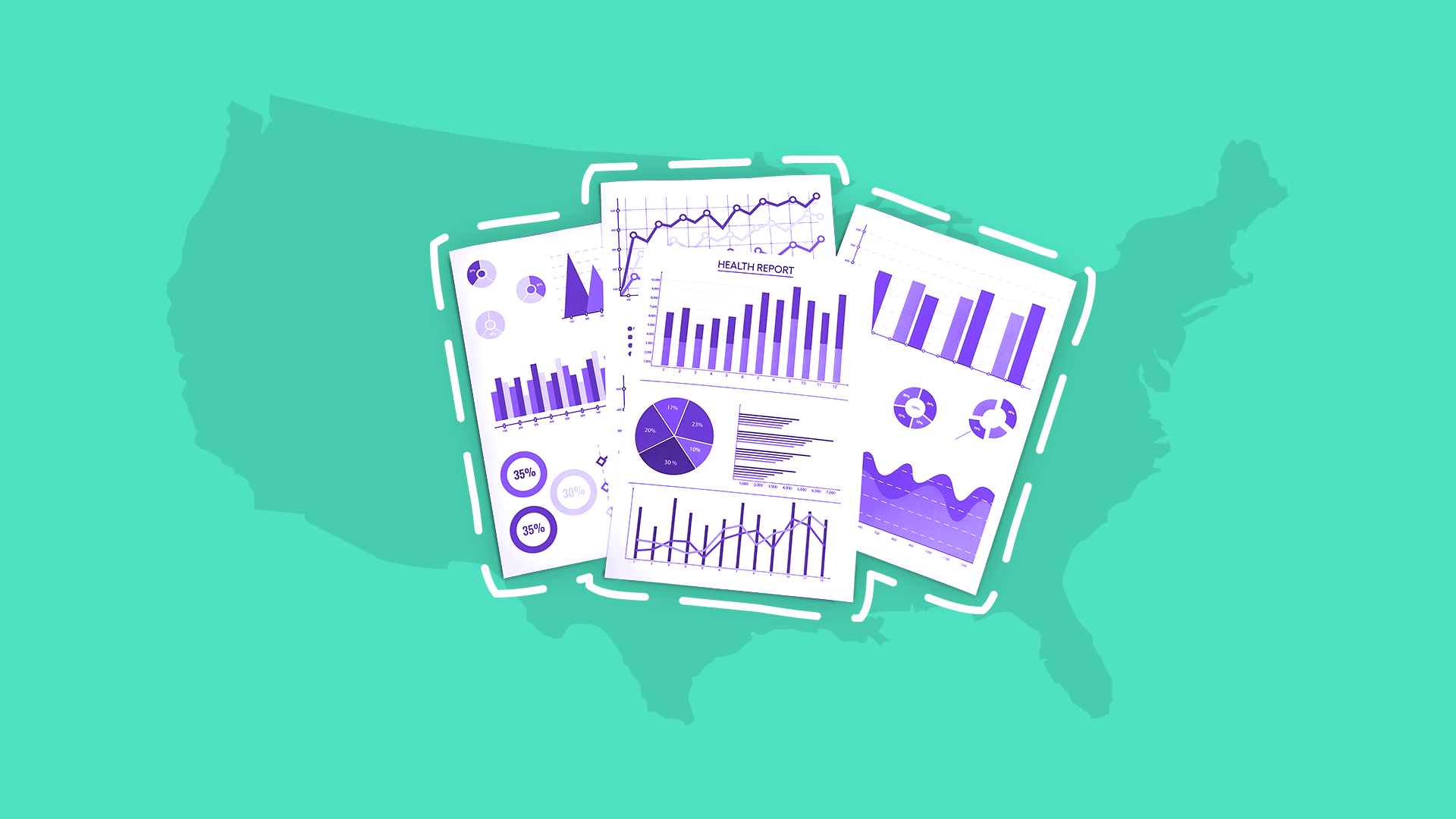10 of the Most Common Mental Health Disorders

Mental health is an incredibly important topic that is only just now receiving the attention it deserves in society. Long-standing mental health challenges can cause a person both physical and mental pain, but there are a wide variety of potential disorders.
Under the Diagnostic and Statistical Manual of Mental Disorders (DSM-5), there are a number of mental health disorders described. However, new entries are being added or reclassified everyday which is why it’s important to stay up to date on all things mental health.
Here are some of the most common mental health disorders and some of their common symptoms:
Anxiety Disorder
Anxiety disorder is one of the most common mental health disorders today, with nearly 20% of U.S. adults having experienced an anxiety disorder. Anxiety disorders are marked by feelings of intense fear or distress that can prevent a person from doing everyday activities.
Some common emotional symptoms of anxiety disorders are feelings of apprehension, tension, restlessness or irritability, and anticipating the worst or always watching for danger in seemingly ordinary circumstances. Physical signs include a pounding heart rate, shortness of breath, headaches, upset stomach, and more.
Bipolar Disorder
Bipolar disorder is marked by dramatic shifts in a person’s mood, energy, and general ability to think in a straightforward manner. While this condition does not affect as many people around the world as some others on this list, if left untreated bipolar disorder can be one of the worst mental health disorders.
Some of the common symptoms of bipolar disorder are mania, which is characterized by psychotic episodes, as well as severe depression. The exact causes of bipolar disorder are still being studied, but stress, genetics, and brain structure are all being researched and are currently believed to be contributing factors.
Borderline Personality Disorder
Characterized by difficulties regulating emotion, impulsivity, and an inability to maintain healthy relationships, a borderline personality disorder is a serious mental health disorder that can affect a person’s daily life.
Some common symptoms include making frantic efforts to avoid real or imagined abandonment by friends and family, unstable personal relationships, self-harming behaviour, chronic feelings of boredom or emptiness, and more. As with bipolar disorder, the exact cause of borderline personality disorder is still being heavily researched.
Depression
As with anxiety, depression is one of the most common mental health disorders seen around the world today. Depression is more than just feeling sad and is a serious mental health condition that requires an official diagnosis and treatment. Some people may experience a single depressive episode in their life whereas others may experience many.
Common symptoms of depression include changes in sleep or appetite, a lack of concentration, a loss of energy, lack of interest in activities, hopelessness or guilty thoughts, physical aches and pains, and much more. Depression is a serious mental health disorder that can cause trauma, so do not ignore the signs and symptoms.
Eating Disorders
Those who seem to become preoccupied with food and weight issues can sometimes develop one of many eating disorders that can be dangerous both physically and mentally. Eating disorders can develop in anybody at any age, though they are most common in younger adults and adolescents.
Anorexia Nervosa, Bulimia Nervosa, and Binge Eating Disorder are among the most common and are characterized by unhealthy habits involving food intake.
Generalized Anxiety Disorder
Generalized anxiety disorder is a subset of the umbrella anxiety disorders, but earns a place on this list as it is one of the most common anxiety disorders today. Being able to occur at any age and featuring symptoms similar to a panic disorder, GAD is characterized by excessive anxiety regarding two or more aspects of life.
Palpitations, shortness of breath, and dizziness are all common symptoms of generalized anxiety disorder. This mental health disorder can appear in anybody, and has become even more prevalent with remote work in the pre and post-pandemic world.
Obsessive-compulsive Disorder
An obsessional-compulsive disorder (OCD) involves repetitive and unwanted thoughts leading to overwhelming urges to commit certain behaviors. These compulsions can range from person to person and look drastically different depending upon the person affected.
People with obsessions often have feelings about harming or having harmed another person, doubts that they did something right, fears of speaking out in public, and more. Compulsions associated with OCD may include doing something a certain number of times, rinsing hands excessively due to a fear of germs, and checking everything over and over again.
Post-traumatic Stress Disorder
PTSD is a form of a mental health disorder that is only just now receiving attention it should have received for years. Any traumatic event such as a natural disaster, military combat, assault, and more can cause PTSD that has a lasting effect on a person’s mental health.
Cognitive and mood symptoms are among the most commonly seen in regard to PTSD which include negative thoughts about one’s self worth, depression, anxiety, out of body experiences, and more. Some people may also experience recurring or intrusive distressing memories of the event that caused their PTSD in the first place.
Psychotic Disorders
Psychosis is a broad term that essentially refers to disruptions a person may experience in their perception of reality. This can manifest as seeing, hearing, or feeling things that are not actually there. This experience is often described as both frightening and confusing.
Unlike some other items on this list, psychosis is actually a symptom rather than a mental illness and can affect as many as 3 in 100 people. Psychosis typically starts with a person briefly losing touch with reality, though it can quickly devolve from there.
Specific Phobias
Debilitating phobias qualify as mental disorders if they interfere with the day-to-day actions you attempt to complete. Regardless of the specific phobia, symptoms of anxiety, depression, and more can all form as a result of these intense fears. No matter the phobia, see a medical professional for guidance on how you can overcome whatever phobia you may be facing.
The Importance of Mental Health
One should never ignore mental health concerns if they have them. Recognizing some of the above signs and receiving a proper diagnosis should be the first step towards improving a mental health disorder. Immediately consult with a professional psychiatrist like Pacific Psych Centers, they offer a variety of therapies to cure mental problems. While most disorders are incurable in the current day, there are medications and therapeutic strategies that can help alleviate symptoms.
Do not hesitate to treat your mental health and work towards a less stressful mindset in your day-to-day life.







